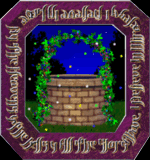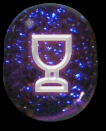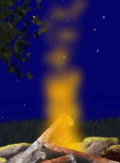Broom
The Broom, or Link (Cytisus scoparius) is a leguminous shrub which is well known as growing abundantly on open places in our rural districts. The prefix "cytisus" is derived from the name of a Greek island where Broom abounded.
Added Jun 13, 2010
| 5,342 Reads
Broom formerly bore the name of Planta Genista, and gave rise to the historic title, "Plantagenet." A sprig of its golden blossom was borne by Geoffrey of Anjou in his bonnet when going into battle, making him conspicuous throughout the strife. In the Ingoldsby Legends it is said of our second King Henry's headdress:— "With a great sprig of broom, which he bore as a badge in it, The stalks of the Broom, and especially the topmost young twigs, are purgative, and act powerfully on the kidneys to increase the flow of urine. They contain chemically an acid principle, "scoparin," and an alkaloid, "sparteine." For medical purposes these terminal twigs are used (whether fresh or dried) to make a decoction which is of great use in dropsy from a weak heart, but it should not be given where congestion of the lungs is present. From half to one ounce by weight of the tops should be boiled down in a pint of water to half this quantity, and a wineglassful may be taken as a dose every four or six hours. For more chronic dropsy, a compound decoction of broom may be given with much benefit. To make this, use broom-tops and dandelion roots, of each half an ounce, boiling them in a pint of water down to half a pint, and towards the last adding half an ounce of bruised juniper berries. When cold, the decoction should be strained and a wineglassful may be had three or four times a day. "Henry the Eighth, a prince of famous memory, was wonte to drinke the distilled water of broome flowers against surfeits and diseases therefrom arising." The flower-buds, pickled in vinegar, are sometimes used as capers; and the roasted seeds have been substituted for coffee. Sheep become stupefied or excited when by chance constrained to eat broom-tops. The generic name, Scoparius, is derived from the Latin word scopa, a besom, this signifying "a shrub to sweep with." It has been long represented that witches delight to ride thereon: and in Holland, if a vessel lying in dock has a besom tied to the top of its mast, this advertises it as in search of a new owner. Hence has arisen the saying about a woman when seeking a second husband, Zij steetk't dem bezen, "She hangs out the broom." There is a tradition in Suffolk and Sussex:— "If you sweep the house with Broom in May, Allied to the Broom, and likewise belonging to the Papilionaceous order of leguminous plants, though not affording any known medicinal principle, the Yellow Gorse (Ulex) or Furze grows commonly throughout England on dry exposed plains. It covers these during the flowering season with a gorgeous sheet of yellow blossoms, orange perfumed, and which entirely conceals the rugged brown unsightly branches beneath. Its elastic seed vessels burst with a crackling noise in hot weather, and scatter the seeds on all sides. "Some," says Parkinson, "have used the flowers against the jaundice," but probably only because of their yellow colour. "The seeds," adds Gerard, "are employed in medicines against the stone, and the staying of the laske" (laxitas, looseness). They are certainly astringent, and contain tannin. In Devonshire the bush is called "Vuzz," and in Sussex "Hawth." The Gorse is rare in Scotland, thriving best in our cool humid climate. In England it is really never out of blossom, not even after a severe frost, giving rise to the well-known saying "Love is never out of season except when the Furze is out of bloom." It is also known as Fursbush, Furrs and Whins, being crushed and given as fodder to cattle. The tender shoots are protected from being eaten by herbivorous animals in the same way as are the thistles and the holly, by the angles of the leaves having grown together so as to constitute prickles. "'Twere to cut off an epigram's point, Linnoeus "knelt before it on the sod: and for its beauty thanked his The Butcher's Broom, Ruscus (or Bruscus) aculeatus, or prickly, is a plant of the Lily order, which grows chiefly in the South of England, on heathy places and in woods. It bears sharp-pointed, stiff leaves (each of which produces a small solitary flower on its upper surface), and scarlet berries. The shrub is also known as Knee Hulyer, Knee Holly (confused with the Latin cneorum), Prickly Pettigrue and Jews' Myrtle. Butchers make besoms of its twigs, with which to sweep their stalls or blocks: and these twigs are called "pungi topi," "prickrats," from being used to preserve meat from rats. The Butcher's Broom has been claimed by the Earls of Sutherland as the distinguishing badge of their followers and Clan, every Sutherland volunteer wearing a sprig of the bush in his bonnet on field days. This shrub is highly extolled as a free promoter of urine in dropsy and obstructions of the kidneys; a pint of boiling water should be poured on an ounce of the fresh twigs, or on half-an-ounce of the bruised root, to make an infusion, which may be taken as tea. The root is at first sweet to the taste, and afterwards bitter.
Added Jun 13, 2010
| 5,342 Reads
Share The Magic ...
The GoE MONEY!!! Course - A Course In Real MONEY MAGIC!
|





















